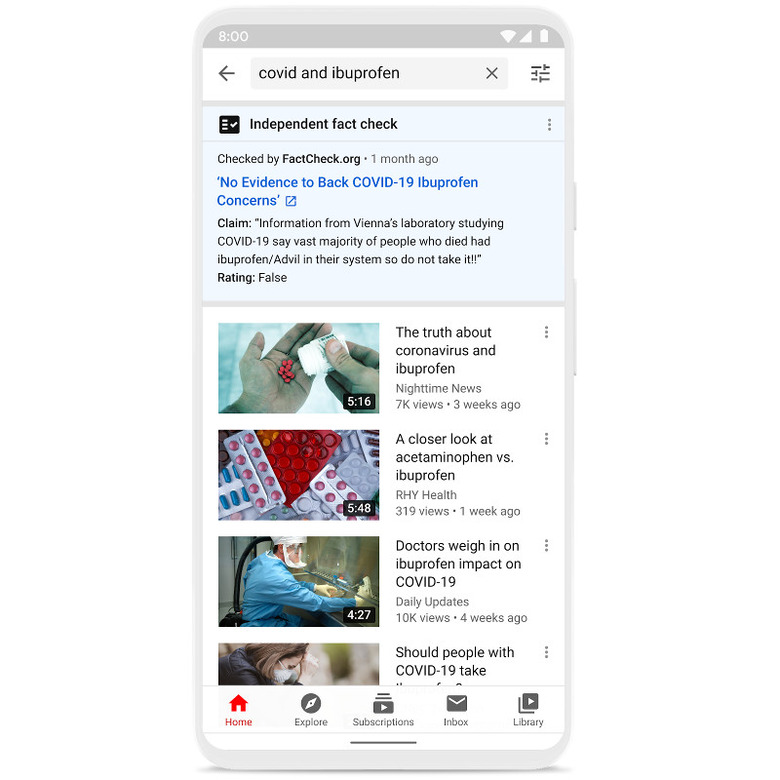YouTube Brings Fact-Checking Panels To US To Combat COVID-19 Misinformation
The coronavirus pandemic is making this a tense time for all of us, and in some cases, misinformation can add to that unease. Whether it's conspiracy theories or general misinformation about bogus COVID-19 remedies, there's a lot of bad info about the coronavirus pandemic out there. Today, YouTube announced new measure to help combat that misinformation in the videos that are uploaded to its website.
It'll do that by expanding its fact-check information panels to the United States. This feature isn't entirely new as it received a limited launch in Brazil and India last year, but as we find ourselves in the midst of the pandemic – with the US proving to be a hot zone for COVID-19, no less – YouTube has decided to roll it out further.
The fact check panel builds upon the measures YouTube has taken in years prior, going hand-in-hand with the information panels that link to authoritative sources on the matter at hand – for instance, when viewing videos about COVID-19, YouTube will show panels that provide links to sources like the WHO and the CDC.
"We're now using these panels to help address and additional challenge: Misinformation that comes up quickly as part of a fast-moving news cycle, where unfounded claims and uncertainty about facts are common. (For example, a false report that COVID-19 is a bio-weapon)," YouTube wrote in a blog post today. YouTube says that the panel will show links to third-party, fact-checked articles for relevant search queries.

Which publications will be featured in those panels? All US based publishers can potentially appear there, so long as they adhere to ClaimReview's standards (the tagging system YouTube uses for its panels) and "are either a verified signatory of the International Fact-Checking Network's (IFCN) Code of Principles or are an authoritative publisher." Google explains how it determines authoritativeness on this YouTube Help page.
YouTube says that "over a dozen" US publishers will be featured in these fact-check panels to start, naming four specifically: The Dispatch, FactCheck.org, PolitiFact, and The Washington Post Fact Checker. This roll out will also see Google donating $1 million to the International Fact-Checking Network.
Google says that the fact-checking panels on YouTube will require "some time" before they're fully ramped-up, promising that the system will become more accurate over time, with Google planning to roll it out to more countries in the future. Here in the US, we should see these panels beginning today, so keep an eye out for them while you're browsing YouTube.
